Related Research Articles
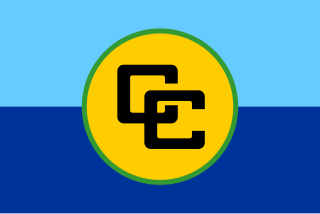
The Caribbean Community is an intergovernmental organisation that is a political and economic union of 15 member states and five associated members throughout the Americas, The Caribbean and Atlantic Ocean. It has the primary objective to promote economic integration and cooperation among its members, ensure that the benefits of integration are equitably shared, and coordinate foreign policy. The organisation was established in 1973, by its four founding members signing the Treaty of Chaguaramas. Its primary activities involve:
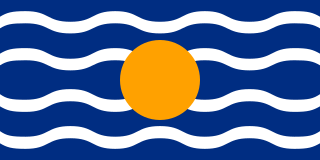
The West Indies Federation, also known as the West Indies, the Federation of the West Indies or the West Indian Federation, was a short-lived political union that existed from 3 January 1958 to 31 May 1962. Various islands in the Caribbean that were part of the British Empire, including Trinidad and Tobago, Barbados, Jamaica, and those on the Leeward and Windward Islands, came together to form the Federation, with its capital in Port of Spain, Trinidad and Tobago. The expressed intention of the Federation was to create a political unit that would become independent from Britain as a single state – possibly similar to Canada, the Federation of Australia, or the Federation of Rhodesia and Nyasaland. Before that could happen, the Federation collapsed due to internal political conflicts over how it would be governed or function viably. The formation of a West Indian Federation was encouraged by the United Kingdom, but also requested by pan-Caribbean nationalists.

The University of the West Indies (UWI), originally University College of the West Indies, is a public university system established to serve the higher education needs of the residents of 18 English-speaking countries and territories in the Caribbean: Anguilla, Antigua and Barbuda, The Bahamas, Barbados, Belize, Bermuda, British Virgin Islands, Cayman Islands, Dominica, Grenada, Guyana, Jamaica, Montserrat, Saint Kitts and Nevis, Saint Lucia, Saint Vincent and the Grenadines, Trinidad and Tobago, and Turks and Caicos Islands. Each country is either a member of the Commonwealth of Nations or a British Overseas Territory.
Karl Terrence Hudson-Phillips, ORTT, QC was an Attorney-General of Trinidad and Tobago and a judge of the International Criminal Court. He was also lead counsel in the murder trial of Grenadian Prime Minister Maurice Bishop.

The Caribbean Court of Justice is the judicial institution of the Caribbean Community (CARICOM). Established in 2005, it is based in Port of Spain, Trinidad and Tobago.

Representation of the People Act is a stock short title used in Antigua and Barbuda, The Bahamas, Bangladesh, Barbados, Belize, Ghana, Grenada, Guyana, India, Jamaica, Mauritius, Pakistan, Saint Vincent and the Grenadines, Trinidad and Tobago, the United Kingdom and Vanuatu for legislation dealing with the electoral system. Representation of the People Acts is a collective title for legislation relating to representation of the people, including Rating Acts and other Registration Acts. The title was first used in the United Kingdom in the 1832 Great Reform Act and was adopted in other countries of, or formerly part of, the British Empire through the spread of the Westminster parliamentary system.

The High Commission of Canada in Barbados is Canada's main diplomatic mission to Barbados. The exact location is Bishop's Hill Court in Bridgetown, St. Michael. The auspices of the High Commission to Barbados also accredited to Eastern Caribbean counterpart islands of Antigua and Barbuda, Dominica, Grenada, Saint Kitts and Nevis, Saint Lucia and Saint Vincent and the Grenadines, as well as three British overseas territories: Anguilla, the British Virgin Islands and Montserrat. It also includes consular and trade services for Guadeloupe, Martinique, Saint-Martin and Sint Maarten.

The Barbados national cricket team is the national cricket team of Barbados, organised by the Barbados Cricket Association (BCA). Barbados is a member of the West Indies Cricket Board (WICB), which is a member of the International Cricket Council (ICC) in its own right, and Barbadians play internationally for the West Indies cricket team.

The Caribbean Free Trade Association (CARIFTA) was an English-speaking economic trade organisation. It organised on 1 May 1968, to provide a continued economic linkage between the English-speaking countries of the Caribbean. The agreements establishing it came following the dissolution of the West Indies Federation, which lasted from 1958 to 1962.
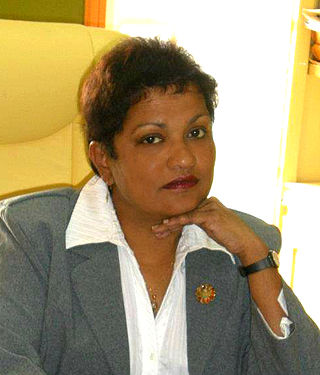
Dana Saroop Seetahal SC was a Trinidad and Tobago lawyer and politician. She served as an Independent Senator in the Senate. She was an attorney at law in private practice and was formerly a lecturer at the Hugh Wooding Law School, Trinidad and Tobago, where she held the position of Course Director in Criminal Practice and Procedure. She was assassinated in Port of Spain on 4 May 2014.

The Judiciary of Barbados is an independent branch of the Barbadian government, subject only to the Barbadian Constitution. It is headed by the Chief Justice of Barbados. Barbados is a common law jurisdiction, in which precedents from English law and British Commonwealth tradition may be taken into account.
The Hugh Wooding Law School (HWLS) is a law school in Trinidad and Tobago.
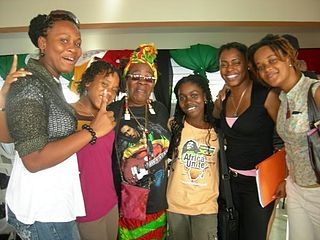
Women in Trinidad and Tobago are women who were born in, who live in, or are from Trinidad and Tobago. Depending from which island the women came, they may also be called Trinidadian women or Tobagonian women respectively. Women in Trinidad and Tobago excel in various industries and occupations, including micro-enterprise owners, "lawyers, judges, politicians, civil servants, journalists, and calypsonians." Women still dominate the fields of "domestic service, sales, and some light manufacturing."
Anthony Amos Lucky is a judge of the United Nations International Tribunal for the Law of the Sea. As a retired Court of Appeal Judge, Anthony served in the legal system of Trinidad and Tobago as a magistrate for ten years prior to becoming a judge for another 16 years. He is the recipient of the Chaconia Medal (Gold) for his long and meritorious service to Trinidad and Tobago.

Dame Sandra Prunella Mason is a Barbadian politician, lawyer, and diplomat who is serving as the first president of Barbados since 2021. She was previously the eighth and final governor-general of Barbados from 2018 to 2021, the second woman to hold the office. On 20 October 2021, Mason was elected by the Parliament of Barbados to become the country's first president, and took office on 30 November 2021, when Barbados ceased to be a constitutional monarchy and became a republic.
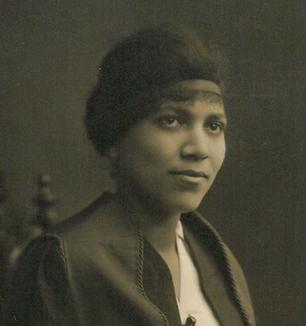
Iris de Freitas Brazao was the first female Barrister-at-Law (Lawyer) in the Commonwealth Caribbean.
Sir Hugh Olliviere Beresford Wooding was a lawyer and politician from Trinidad and Tobago.

Trinidadian and Tobagonian nationality law is regulated by the Trinidad and Tobago Constitution Order of 1962, as amended; the 1976 Citizenship Act, and its revisions; and various British Nationality laws. These laws determine who is, or is eligible to be, a national of Trinidad and Tobago. Trinidadian and Tobagonian nationality is typically obtained either on the principle of jus soli, i.e. by birth in Trinidad and Tobago or under the rules of jus sanguinis, i.e. by birth abroad to parents with Trinidadian and Tobagonian nationality. It can be granted to persons with an affiliation to the country, or to a permanent resident who has lived in the country for a given period of time through naturalisation. There is not currently a program in Trinidad and Tobago for persons to acquire nationality through investment in the country. Nationality establishes one's international identity as a member of a sovereign nation. Though it is not synonymous with citizenship, for rights granted under domestic law for domestic purposes, the United Kingdom, and thus the commonwealth, have traditionally used the words interchangeably.
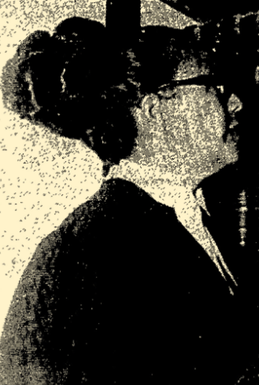
Paula Frances Beaubrun was a Grenadian-born, Saint Lucian barrister, who was the first woman to be appointed to the post of Attorney General of the British Virgin Islands.
References
- ↑ Brathwaite, Joan A (1999). Women and the Law: A Bibliographical Survey of Legal and Quasi-legal Materials with Special Reference to Commonwealth Caribbean Jurisdictions and Including Relevant Commonwealth Caribbean Legislation and Case Material. University of the West Indies Press. p. 287. ISBN 9766400695.
- ↑ "'Silk' robe for Bajan lawyer". NationNews. January 29, 2012.
- ↑ "16 legal minds get silk". Newsday. January 1, 2012.